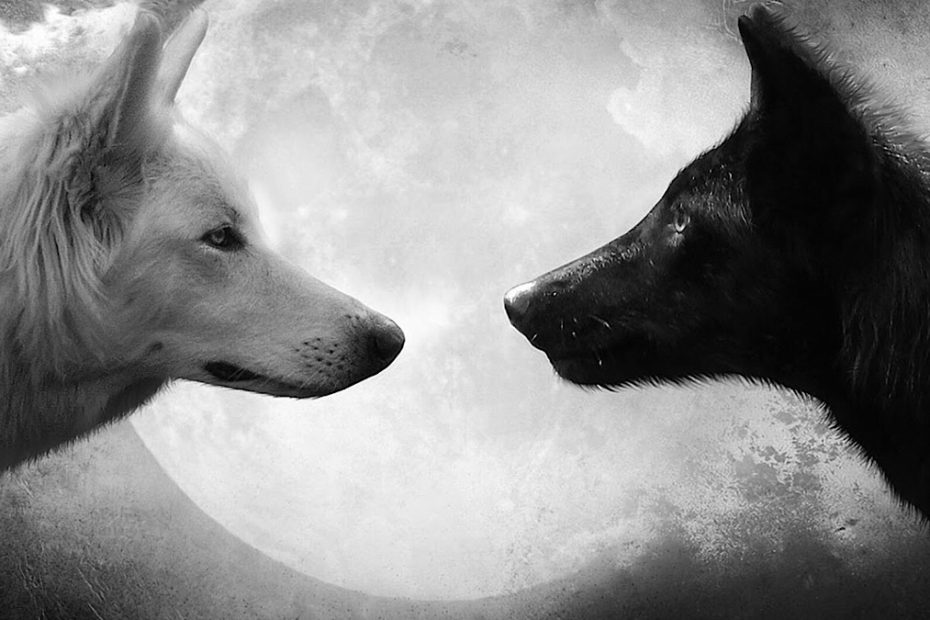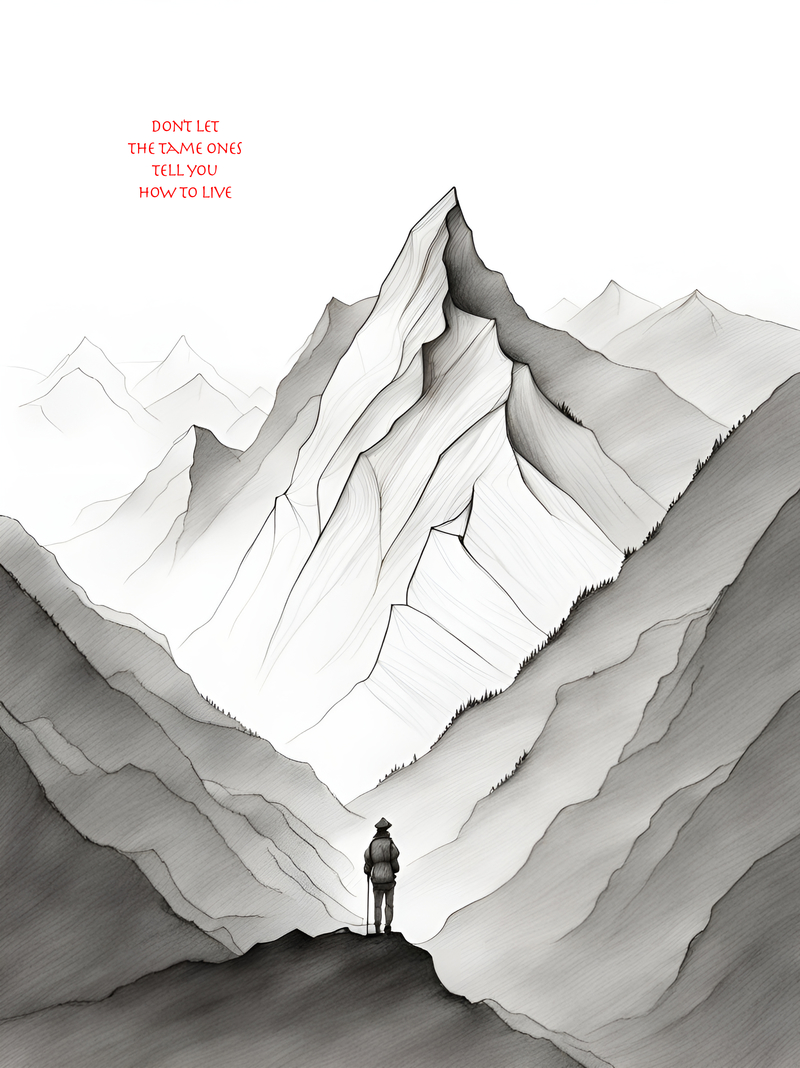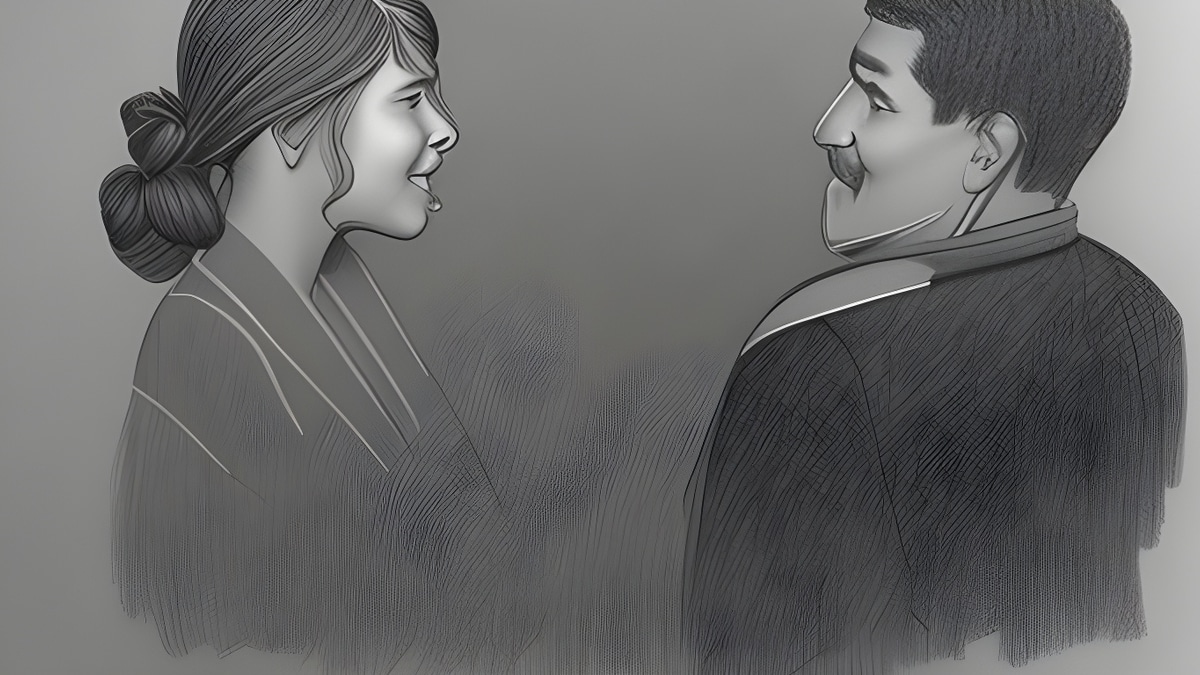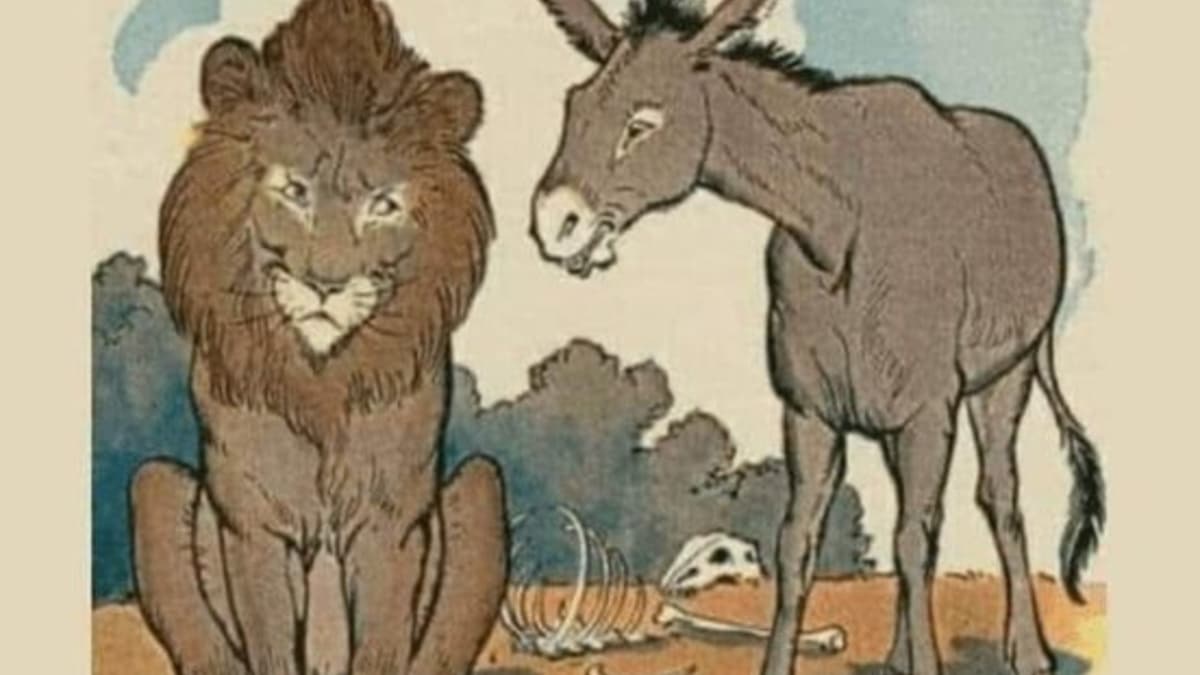Excerpt: The story of two wolves. One is all things good. The other is all things bad. They both live inside. Which will win? The answer is in the tale…
The Story of Two Wolves: Abbreviated Version
An old Cherokee is teaching his grandson about life. “A fight is going on inside me,” he said to the boy. “It is a terrible fight and it is between two wolves. One is evil – he is anger, envy, sorrow, regret, greed, arrogance, self-pity, guilt, resentment, inferiority, lies, false pride, superiority, and ego.”
He continued, “The other is good – he is joy, peace, love, hope, serenity, humility, kindness, benevolence, empathy, generosity, truth, compassion, and faith. The same fight is going on inside you – and inside every other person, too.”
The grandson thought about it for a minute and then asked his grandfather, “Which wolf will win?”
The old Cherokee simply replied, “The one you feed.”
NEW In The Shop: Don’t Let The Tame Ones Tell You How To Live [Poster]
Why We ♥ It: Some of the best advice I (Matt here) ever got was: don’t take life advice from people who aren’t living a life you want to live and don’t take criticism from people you wouldn’t go to for advice. I created this poster to act as a reminder to listen more closely to our role models and less closely to our critics, trolls, and tamed-comfort-zone-hugger acquaintances. It’s also a perfect gift for the outdoor adventurer, travel enthusiast, or solo explorer (or soon to be). Available in print or digital download. 👇🏼
...Want to advertise your book, product, or service? Send inquiries to matt@movemequotes.com.
The Story of Two Wolves: Extended Version
There once was an old Indian. His little grandson often came in the evenings to sit at his knee and ask the many questions that children ask. One day the grandson came to his grandfather with a look of anger on his face.
Grandfather said, “Come, sit, tell me what has happened today.”
The child sat and leaned his chin on his Grandfather’s knee. Looking up into the wrinkled, nut brown face and the kind dark eyes, the child’s anger turned to quiet tears.
The boy said, “I went to the town today with my father, to trade the furs he has collected over the past several months. I was happy to go, because father said that since I had helped him with the trapping, I could get something for me. Something that I wanted.”
“I was so excited to be in the trading post. I have not been there before. I looked at many things and finally found a metal knife! It was small, but good size for me, so father got it for me.”
Here the boy laid his head against his grandfather’s knee and became silent. The Grandfather, softly placed his hand on the boys raven hair and said, “And then what happened?” Without lifting his head, the boy said, “I went outside to wait for father and to admire my new knife in the sunlight. Some town boys came by and saw me, they got all around me and starting saying bad things.”
“…They called me dirty and stupid and said that I should not have such a fine knife. The largest of these boys, pushed me back and I fell over one of the other boys. I dropped my knife and one of them snatched it up and they all ran away, laughing.”
Here the boy’s anger returned, “I hate them, I hate them all!”
The Grandfather, with eyes that had seen too much, lifted his grandson’s face so his eyes looked into the boy’s. Grandfather said, “Let me tell you a story.”
“I too, at times, have felt a great hate for those that have taken so much, with no sorrow for what they do.”
“But hate wears you down, and does not hurt your enemy. It is like taking poison and wishing your enemy would die. I have struggled with these feelings many times. It is as if there are two wolves inside me, one is white and one is black. The White Wolf is good and does no harm. He lives in harmony with all around him and does not take offense when no offense was intended. He will only fight when it is right to do so, and in the right way.”
“…But the Black Wolf is full of anger. The littlest thing will set him into a fit of temper. He fights everyone, all the time, for no reason. He cannot think because his anger and hate are so great. It is helpless anger, for his anger will change nothing. Sometimes it is hard to live with these two wolves inside me, for both of them seek to dominate my spirit.”
The boy, looked intently into his Grandfather’s eyes, and asked, “Which one wins Grandfather?”
The Grandfather, smiled and said, “The one I feed.”
Afterword: Which One Will YOU Feed?
The sentiment in this story is a simple, yet profound one: The wolf that you feed is the wolf that will win—the emotions that you feed are the emotions that will win. Because the wolf that you starve can’t survive, just like the emotions that you starve can’t survive. How could they? No food—no source of life. And a starved wolf can’t contend with a well fed one.
So, when you’re dealing with your inner emotions, pay closer attention to which one’s you’re feeding. Are you feeding anger, envy, sorrow, regret, greed, arrogance, self-pity, guilt, resentment, inferiority, lies, false pride, superiority, and ego? Or are you feeding joy, peace, love, hope, serenity, humility, kindness, benevolence, empathy, generosity, truth, compassion, and faith? Because whatever you feed is what will continue to grow and strengthen.
And what kind of food do emotions “eat” exactly? Attention—time and energy. For example, the time and energy that you invest into feeding anger is what fuels anger. This is easy to understand when you think about a time when you got mad… and then made it 10x worse by thinking about the whole situation over and over and over again. Attention is emotional fuel.
Which means, you have the same power to grow the opposite type of emotions, too. You simply need to give your attention to them instead. And one of the best ways to initiate this type of thinking is by asking pointed and deliberate questions. Questions like, “What am I grateful for today?” “What’s feeling good in my life right now?” “What can I do right now that’s going to put me into the best mood later?” And so on.
One of the main reasons why I think so many people are living their lives with a dominant “Black Wolf” inside is because when things are good—joyful, loving, peaceful, etc.—our attention doesn’t go towards those emotions, it usually goes elsewhere. But, when things aren’t good—angry, jealous, greedy, etc.—we simply can’t stop thinking about it. And so, the “White Wolf” is sort of ignored when it’s winning a fight, but the “Black Wolf” is constantly being fed more when it’s winning.
Think about it. When you’re happy, do you consciously feed your happy? Or do you tune into some passive entertainment, take your good state for granted, and continue to distract yourself until something goes “wrong?” For most, feeding the “White Wolf” is a foreign concept and feeding the “Black Wolf” is almost automatic and engrained into our nature. It takes deliberate effort to change this.
So, how might you fix this? Mindfulness. You need to learn how to more frequently check in with your inner emotional state. Not just when things aren’t going well—but, when things are. Spend some extra time every day feeding the “White Wolf” with the attention it needs to strengthen and grow inside of you. Start a gratitude journal, do daily reflections, send more kindness out into the world, begin a meditation practice, etc.
Because if you don’t—if you keep on doing what you’ve been doing—you’ll keep on getting the same results you’ve been getting. The feeding regime will remain the same and whichever wolf you’ve been feeding more will only continue to grow and the one you’ve been feeding less will only continue to weaken. Choose wisely. Feed accordingly. And act like your life depended on it. Because the state of your life does depend on it. Good luck.
Read Next:
NEW In The Shop: Don’t Let The Tame Ones Tell You How To Live [Poster]
Why We ♥ It: Some of the best advice I (Matt here) ever got was: don’t take life advice from people who aren’t living a life you want to live and don’t take criticism from people you wouldn’t go to for advice. I created this poster to act as a reminder to listen more closely to our role models and less closely to our critics, trolls, and tamed-comfort-zone-hugger acquaintances. It’s also a perfect gift for the outdoor adventurer, travel enthusiast, or solo explorer (or soon to be). Available in print or digital download. 👇🏼
...Want to advertise your book, product, or service? Send inquiries to matt@movemequotes.com.

Written by Matt Hogan
Founder of MoveMe Quotes. On a mission to help busy people do inner work—for better mental health; for healing; for personal growth. Find me on Twitter / IG / Medium. I also share daily insights here. 🌱
It has taken me 1,000’s of hours to build this free library for you. If it has helped you, you can support my continued effort here. ☕️



![A Picture Of Happiness [Short Story]](https://movemequotes.com/wp-content/uploads/2022/05/Happiness..jpeg)


